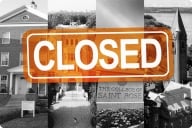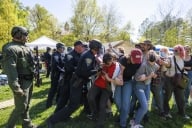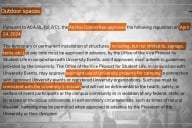You have /5 articles left.
Sign up for a free account or log in.

Columbia University President Minouche Shafik spoke to Congress about campus antisemitism on Wednesday.
Sergi Reboredo/VW Pics/Universal Images Group via Getty Images
Despite some tense moments, experts agree that Columbia University President Minouche Shafik gave a better performance addressing campus antisemitism before the House of Representatives’ Education and Workforce Committee than the presidents of MIT, Harvard and University of Pennsylvania did in December.
Unlike her peers, Shafik and her fellow witnesses—Board of Trustees co-chairs David Greenwald and Claire Shipman, along with David Schizer, the law professor leading Columbia's antisemitism task force—quickly and definitively agreed that calling for the genocide of Jewish people would violate the university’s code of conduct.
“Columbia beat UPenn and Harvard,” said Karl Schonberg, a professor of government at St. Lawrence University, quoting what Florida Republican Aaron Bean said during the hearing. Schonberg has argued that Sally Kornbluth of MIT, Claudine Gay of Harvard and Liz Magill of University of Pennsylvania spoke without “moral clarity” at their hearing. He noted that witnessing their interrogation—and the subsequent backlash to their tepid answers—probably helped Shafik, as did the presence of her board members and Schizer.
“The soundbites might be the moments when she was a little flustered or didn’t answer a question directly, and I don’t think you’re going to avoid that in that setting,“ he said. “[But] by the standards of the first hearing, which is setting the bar pretty low, I thought it was good.”
Hollis Robbins, dean of humanities at the University of Utah, echoed that sentiment in text messages to Inside Higher Ed, saying that Shafik exhibited “poise” in the face of questions that ranged from serious inquiries to attempted “gotchas.” Overall, she said, Shafik’s testimony was especially effective at communicating to the committee the complexity of running a university and balancing the varied interests of campus constituents.
Shafik’s responses also received the seal of approval from the Anti-Defamation League (ADL), a nongovernment organization that fights antisemitism, which in recent months has criticized colleges and universities for failing to protect Jewish students from hate speech and attacks.
Jonathan Allen, assistant director of government relations for the ADL, noted that while Columbia has been a “hotbed” for antisemitism since Oct. 7—it received a “D” on the organization’s recent antisemitism report card—“President Shafik’s answers were more clear and concise than some of her colleagues were at the hearing a few months back."
But he said it remains to be seen whether her actions will reflect her responses “when she returns to campus.”
Allen said that ADL’s CEO, Jonathan Greenblatt, has interfaced with students and administrators at Columbia about antisemitism on campus and hopes to speak with Shafik soon. Among the organization’s top concerns are that the student code of conduct does not reference antisemitism specifically and that the university does not mandate antisemitism training for its students and employees. Those specific policy issues did not come up in the hearing, though Allen noted that the question of enforcement and sanctions of individuals who violate policies related to antisemitism, which representatives spent much of the hearing grilling Shafik about, were just as important.
‘Playing Into Their Hands’
While many praised Shafik, some criticized her for being too eager to please her Republican questioners and avoid right-wing backlash. Lynn Pasquerella, president of the American Association of Colleges and Universities, told Inside Higher Ed after the hearing that Shafik may have adopted too hard a stance against faculty speech as Republican committee members grilled her on whether Columbia continued to employ professors who had made controversial statements supporting Hamas.
In response to questions about faculty free expression and investigations into their speech outside the classroom, Pasquerella said Shafik “was boxed into a corner where she ended up saying things that are likely to be inflammatory with respect to curtailing tenure and freedom of expression in response to what clearly was not an effort [by Republican legislators] to engage in civil debate … I think she was overcorrecting in some cases. She was being very gracious and respectful, but I think she was playing into their hands a bit too much.”
When asked about a now-infamous Oct. 8 article by Columbia professor Joseph Massad that called Hamas’s attack “awesome,” Shafik said that she was “appalled” by Massad’s writings, noted that he is currently under investigation, and promised that if he had not already been removed from his role as a chair of an academic review committee, he soon would be. She also answered questions about two other professors who had made anti-Israeli statements after Oct. 7.
Illustrating just what a fine line college leaders must walk on the issue, Jewish Columbia students argued that Shafik didn’t go far enough in condemning faculty remarks; they expressed disappointment that the president refused to commit to taking action against those professors. The students echoed Representative Tim Walberg’s incredulity at Shafik’s assertion that Massad had “been spoken to” in response to a question about whether there had been any consequences for his blog post.
“It took a lot from the congressmen to get answers out of them,” said Liam Shorr, a first-year undergraduate at Columbia who attended the hearing. “I was disappointed in some of the answers, like how they were taking action. For example, when Shafik was like, ‘Oh, we spoke to Massad.’ That’s not really taking action.”
More hearings are coming soon; the committee is planning to hold one next month to pose similar questions to three K-12 school systems. And Chairwoman Virginia Foxx threatened to bring Shafik back before the committee if she doesn’t appear to be making strides to reduce antisemitism on campus.
Jessica Blake contributed reporting to this article.








